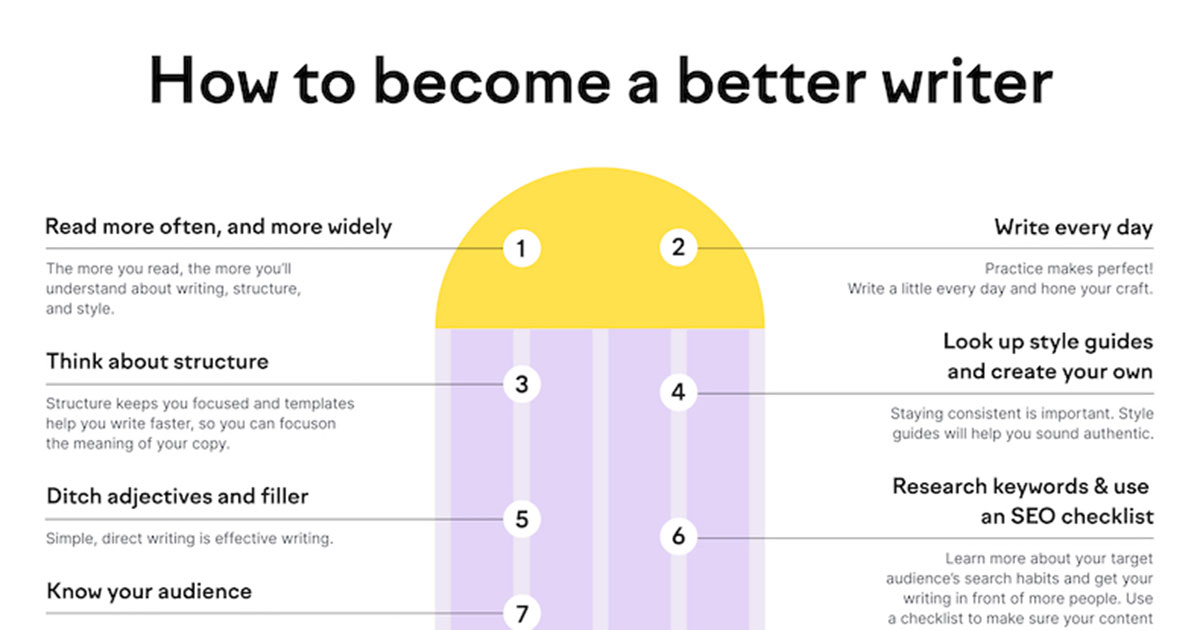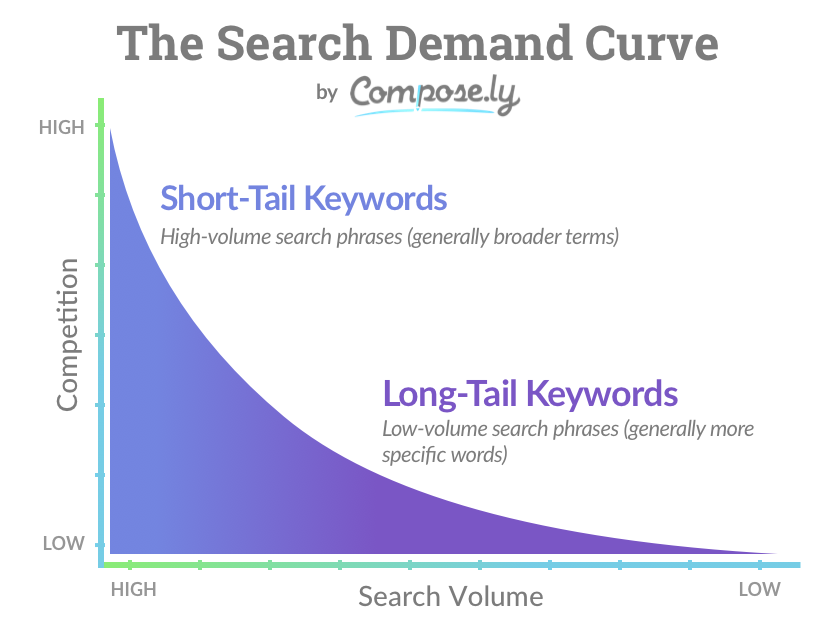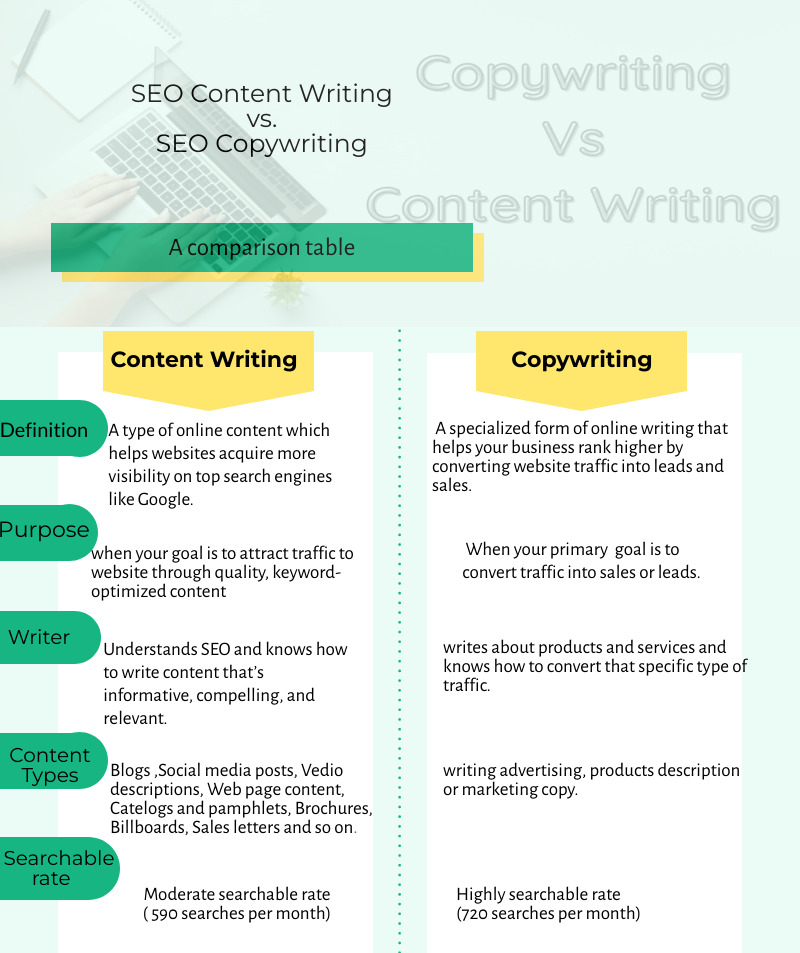| Key Takeaways |
| Due to the ever-increasing competition in the internet market, the need for well-written SEO writers has never been greater. If you’re looking to supplement your income or break into the writing industry full-time, search engine optimization (SEO) writing is a great place to start. Even in a field with significant demand, such as SEO writing, it is not feasible to achieve overnight success. Although getting your first customers could be challenging, you should not give up trying. Practice can help you develop your talents and will also help you grow as a person. |

SEO, or search engine optimization, is a subset of content authoring that focuses on increasing your visibility online in search engines such as Google and Yahoo. Simply put, an SEO writer can craft pieces that perform better in search results.
Still, getting started with SEO writing might be challenging. In contrast to writing for the pleasure of writing alone, this has an actual purpose. SEO writing requires an understanding of SEO principles.
Everything you need to know to get started as an SEO writer is laid out in this article. Keep reading to learn more.
An SEO Writer’s Duties
A search engine optimization (SEO) writer’s job is to increase a website’s exposure online through relevant research and compelling writing. More on-site SEO practices fall under their purview.
Being an SEO expert requires constant research and monitoring of industry developments. You monitor the SEO results as well. To wit: it’s on you to:
- Conducting research on relevant search terms and subject areas for the business sector.
- Recognizing the demographics of your client’s ideal search engine user.
- Deep and pertinent SEO writing, editing, and proofreading.
- Conducting market research and maintaining a current awareness of market developments relevant to one’s field.
- Investigating the material produced by rivals as a means of gaining an edge in one’s content marketing.
- Statistical ordering.
- Examining the methods of content promotion.
- Creating material in various formats for the customer, such as eBooks and blog articles.
- Optimizes and refreshes previously published material for search engines.
Comparison between SEO Article Writing vs. SEO Copywriting
Do they mean different things? Yes, however, they often mean the same thing in the eyes of recruiters. Knowing the distinction can assist you in understanding what is expected of you.
1. Consider your Readership before Beginning to Write
This first piece of advice for producing SEO content stands out for a good reason. Though it appears simple, many businesses create content for the wrong reasons. Create articles that address the concerns or address preferences of your target audience.
The content you provide doesn’t have to connect to your business directly, but it should still be relevant to your field. Write engaging, useful content that ranks well in search engines and positions you and your business as leaders in your field.
Book to Read: How To Be A Content Writer
2. Has a Firm Grasp of the English Language, Syntax, and Spelling
It is a serious issue in terms of search engine optimization. Companies often pay as little as $5 or less for each article to have it created for SEO purposes. However, if the quality of the articles is poor, the investment will be wasted. An SEO writer worth their salt will have a firm grasp of the language.
The quality of your content, website, brand, and business will all suffer if you make a single grammatical, structural, or spelling error. Consumers prefer to do business with reputable brands rather than those who regularly produce subpar material.
3. Get the Word Out with Eye-Catching Headlines
You have a small quantity of text to create an enormous impact. It would help if you did not dismiss the impact of a catchy title on search engine optimization. Create titles that are informative, engaging, and keyword-rich.
Ensure that your articles’ meta descriptions are engaging and provide more information about the content. Use your title and meta description since these will be displayed in search engine results.
4. Communicates Ideas Concisely and Effectively in Writing
It’s not inexpensive to hire a writer who really can communicate effectively in a few well-chosen words. Nevertheless, if you want people to read and share your content, it must be clear, concise, and useful. People don’t invest much effort into the material. Your audience will forget you ever existed if yours fails to grab their attention and convey your message effectively and promptly.
5. Think of Using Visuals
Enhance the visual appeal of your content by including relevant photographs. As a species, people are visual learners. You may increase the impact of your blog article by including a picture. Do you use Pinterest? Blog articles with photographs may be “pinned,” opening up another channel for website visitors in addition to the other social media platforms.
6. Keep an Eye on your Behavior
Maintain control of your efforts to create content that search engines like. Additionally, Google Analytics allows you to monitor data like how often a page is visited and how long users spend without charging a dime. Find out how people who visit your site respond to the content by looking at metrics like bounce rate and average time spent on the site.
If the amount of time on the page is short and your bounce rate is high, it’s possible that your content wasn’t what people were looking for.
You may gauge the post’s potential for going viral by checking the number of social interactions with it (likes, shares, etc.). By examining these basic indicators, you can determine which pieces of content are the most popular and successful, allowing you to create more of the same in the future.
Generally, your website’s success depends on search engine optimization and excellent content production.
7. Adept in Writing in a Way that is Search Engine Friendly
An SEO writer doesn’t need to be an SEO specialist. This person has to be a seasoned writer who is also well-versed in the SEO best practices of today. If applicable, the titles, the opening paragraph, and the header tags should all use the keywords organically.
They should be aware of relevant keywords and the optimal length for the material. You shouldn’t hire a writer if they don’t at least know the basics of search engine optimization.
Book to Read: 7 Steps to Better Writing
8. Collect as Many Experience as Possible and Build your Portfolio
Building a portfolio is crucial if you want to find work as a freelance SEO content writer. You’ll need something to demonstrate your previous work and expertise to persuade potential clients to hire you.
Additionally, you may create your blog or guest write on others’ blogs, and you could also compile a history of any prior articles. Keep amassing samples of your work while honing in on your specialty, though.
However, suppose you’re just starting SEO content writing and don’t yet have a large body of work to include in your portfolio. In that case, you may always use examples to demonstrate your proficiency. Among the many excellent options for gaining expertise in content creation are:
- Guest posts are welcome and are free of charge
- Making connections with other authors in your field
- Making yourself hireable by others
- Selling your ideas to potential customers
- Joining discussion groups on Facebook and professional networks on LinkedIn
- Incorporating the use of copywriting services, such as Copify
9. Use Several Long-tail Keywords

Long-tail keyword utilization is an often-overlooked yet crucial SEO strategy. That’s because keywords allow you to better align your material with the questions people are trying to answer when they perform a search.
Search engine optimization (SEO) writers struggle to rank for competitive single-word keywords due to the abundance of material available online. Therein lies the power of long-tail keywords.
Create a set of long-tail keywords associated with your topic as part of your keyword research. It’s the best way to zero in on the specific questions your target audience is using to find you online.
Long-tail keywords, such as “Best SEO services in my region,” may give you a greater chance of ranking for broad topics like “SEO services,” for instance. People’s natural speech patterns closely mirror their online search queries.
10. Studies are Essential
The first step in becoming a competent writer is acquiring solid research skills. Writing with search engine optimization (SEO) in mind requires research skills. The best research approach is to gather ten times as much material as you think you’ll need, then cull it down to what works in your piece. More study means a more informative article. The distinction is immediately obvious to the reader.
Using Google and Bing to your advantage is one of the most frequently praised SEO content creation techniques. Additionally, you may learn more by taking in audio and video presentations on the subject. Conducting research is essential.
Invest time and effort into developing your research abilities to attract, engage, and keep your online audience.
Book to Read: KEYS TO PRO CONTENT WRITING
Conclusion
To become a skilled SEO writer, you should take advantage of each chance to expand your repertoire and network with online readers. Now that you know the path you need to follow, you must take it. Create a goal to surpass it and increase SEO experts’ ranks. Use your time effectively, and think before you speak.
Did you find this article helpful? Please look into our other articles, which will teach you how to improve your site’s rankings.




